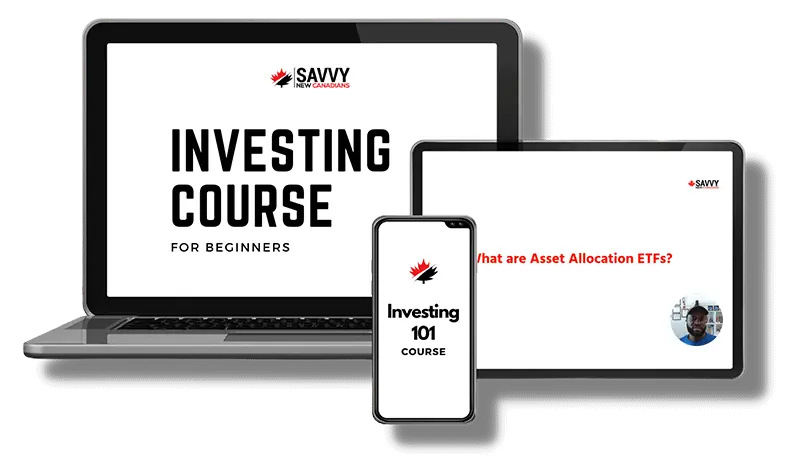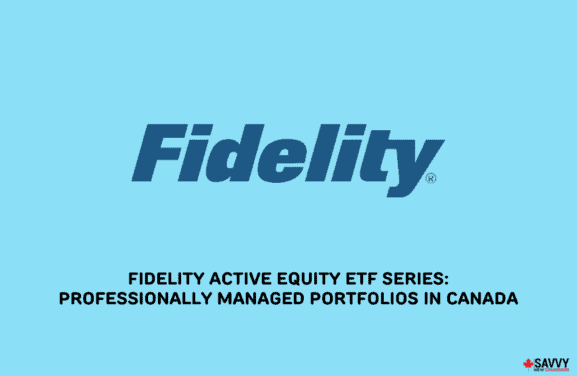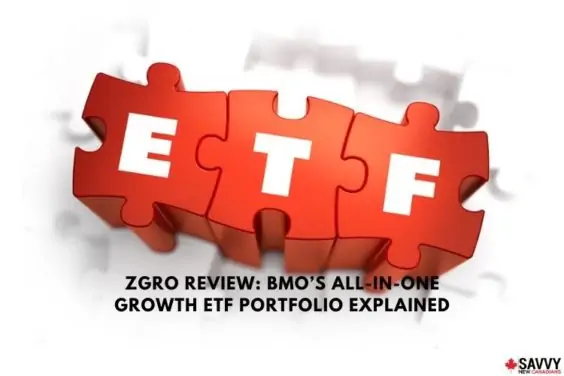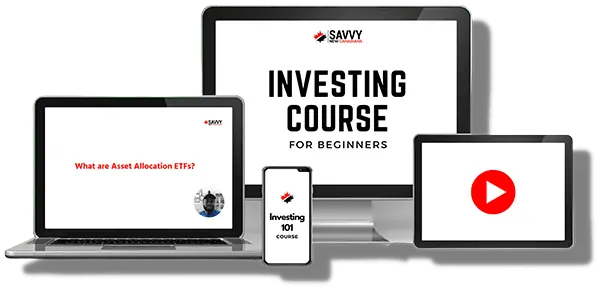In this article, I cover the rules of investing I follow. They can help you to succeed in the financial markets.
I have learned a few things from personal experience investing in the markets, and have also picked up many golden nuggets from others along the way.
While I may not have these golden rules or “commandments” of investing written on any piece of paper, they are well-drilled into my subconscious and come to the fore every now and then when I have to make conscious decisions regarding my investment portfolio.
They are basic guidelines that I believe can make or break an investor’s plan to succeed.
Rules of Investing
#1. Thou Shalt Not Gamble
In hindsight, most of the “investing” I did as a younger chap (when I was in my twenties) was speculation – plain and simple! I was always on the hunt for the next big thing, the hot penny stock, the leveraged investment that was going to make me a millionaire.
I was day-trading anything I could including stocks, forex, futures, and spent thousands of dollars on stock-trading seminars that were supposed to lead me to the “Holy Grail.” I thought I was on this road to wealth until I traded myself out of capital.
Mind you, all the investment assets I traded were legitimate ways to make money and even become wealthy, but my approach was wrong.
I was thinking short-term, betting-against-the-house, trend-chasing, had limited diversification, and took on excessive investment risks.
Gambling (aka Speculation) is different from investing. Investing balances risk vs. return, takes a medium to long-term approach to returns, understands the fundamentals of the investment asset, and looks for value.
Long-term investors can use various tools to help identify whether a company is likely to continue performing well in the future.
The stock market is filled with individuals who know the price of everything, but the value of nothing.
– Phillip Fisher
Calling someone who trades actively in the market an investor is like calling someone who repeatedly engages in one-night stands a romantic.
– Warren Buffett
#2. Thou Shalt Invest Only in What You Understand
Because it sounds good, doesn’t mean you need to buy it. Invest only in assets you understand.
If you remember the fundamentals that guided your purchase of a stock or ETF in the first place, then you are more likely to stay the course (if required) when it runs into the headwinds.
Don’t buy an investment based on a “hot tip,” or what your friend thinks. Do your research and be able to explain to a child why you think an investment is worthwhile.
Shun most news, financial pundits, and talking heads. They have “all” the answers to why the market is rising and falling and are generally not worth your attention if you plan to succeed as an investor.
When necessary, seek guidance. There’s a place for paying professionals for advice if it’s in your best interest. Ensure you invest in accordance with your risk tolerance and investment objectives.
Don’t go looking to invest in “sophisticated” financial instruments and exotic derivatives, when you do not qualify as a “sophisticated” investor.
Know what you own, and know why you own it.
– Peter Lynch
Twenty years in this business convinces me that any normal person using the customary 3% of their brain can pick stocks just as well, if not better, than the average Wall Street expert.
– Peter Lynch
#3. Thou Shalt Cut Your Investment Costs
High and unrewarding investment fees will significantly dampen your portfolio returns in the long term.
Note that I qualify investment fees with “unrewarding.” This is because not all investment costs are bad…as long as you are rewarded with commensurate and additional returns that exceed your costs.
The plain truth is that most of the high Management Expense Ratios (MER) charged by active fund managers are not rewarding.
This is the case when 80% of them underperform their benchmark index every year. With the abundance of low-cost index funds and ETFs, mutual funds will continue to experience an outflow of funds YoY.
That said, mutual funds are not the only culprit when it comes to high fees. If you are actively trading ETFs or stocks and pay commissions when you buy or sell, you should also watch your transaction costs – it adds up!
Fees in whatever size or form, such as front-end loads, back-end loads, MER (management fees and operating expenses), trading expense ratio, and brokerage commissions all add up to rob you of better returns on your capital.
The long-term data repeatedly document that investors would benefit by switching from active performance investing to low-cost indexing.
– Charles Ellis
Index funds have regularly produced rates of return exceeding those of active managers by close to 2 percentage points. Active management as a whole cannot achieve gross returns exceeding the market as a whole and therefore they must, on average, underperform the indexes by the amount of these expense and transaction costs disadvantages.
– Burton Malkiel
#4. Thou Shalt Always Be Diversified
Why risk losing all when something eventually breaks?
Diversification means spreading your investments across assets, asset classes, and regions with negative correlations and with the ultimate goal of lowering your overall portfolio risk and improving long-term returns. Essentially, “don’t put all your eggs in one basket.”
While diversification is great, over-diversification is not. Over-diversification is when you invest in too many assets with similar correlations and end up increasing your risk profile and lowering your potential returns. This is also referred to as “Diworsification,” a term coined by Peter Lynch.
One way to ensure you are adequately diversified is to consider all your assets (savings, mutual funds, ETFs, stocks, real estate, company pension…) as one portfolio and manage them as such.
I seek to construct a portfolio that is both highly concentrated, yet also diverse in terms of industries, types of value, catalysts, and risk
– Whitney Tilson
Wide diversification is only required when investors do not understand what they are doing.
– Warren Buffett
#5. Thou Shalt Invest with a Long-Term Mentality
Invest with the long term in mind. Patience is indeed a virtue. Historical data show that investors who stay the course often come out on top over time.
When it comes to investing, compound interest and time are your best friends. Put them to work, and they will do wonders for your portfolio.
Markets are made to rise and fall. Like ocean waves, the ebb and flow of the markets is a natural cycle. If nothing fundamental has changed with your original investments, let them continue to ride the waves and grow as time passes by.
Trying to pick ‘tops’ and ‘bottoms’ is an exercise in futility. All your bad habits (behavioural biases) will come out swinging, and you will get burned and lose money.
Investing should be more like watching paint dry or watching grass grow. If you want excitement, take $800 and go to Las Vegas.
– Paul Samuelson
I buy on the assumption they could close the market the next day and not reopen it for five years.
– Warren Buffet
#6. Thou Shalt Fully Invest Your Tax-Sheltered Accounts
Tax-sheltered investment accounts allow you to invest and defer taxes to the future when you start withdrawing your funds. In some cases, these accounts are sheltered from taxes forever. These accounts are also referred to as “registered investment accounts.”
You should maximize your tax-sheltered investment accounts for a simple reason: it leaves you with more money compounding over time!
- Tax-sheltered accounts in Canada include the RRSP, RESP, and RRIF. A Tax-Free Savings Account (TFSA) protects your returns from taxes forever.
- Tax-sheltered accounts in the U.S. include Traditional and Roth IRAs, 401(k), and 403(b).
After using up the contribution room in your registered accounts, you can do more investing in a non-registered investment account.
Related: RRSP vs TFSA Account: Factors to Consider
There is no such thing as a good tax.
– Winston Churchill
#7. Thou Shalt Rebalance Your Portfolio Annually
While you should invest with the long-term in mind, that does not necessarily mean you should “set it and forget it” forever.
A good investment strategy involves looking over your portfolio at least once every year to ensure that assets remain allocated in a proportion that fits your overall strategy.
Because different assets will perform differently over the course of the year, this “review period” is a good time to get asset allocations back to target and in tune with your risk tolerance.
Rebalancing may involve buying more of assets that have declined in value (proportion) and/or selling off some assets that have performed well.
A good portfolio is more than a long list of good stocks and bonds. It is a balanced whole, providing the investor with protections and opportunities with respect to a wide range of contingencies.
– Harry Markowitz
Investment planning is about structuring exposure to risk factors.
– Eugene Fama
#8. Thou Shalt Not Despise Your Emergency Fund
Put some money aside for emergencies. This could be in form of cash savings or other cash equivalents (financial instruments that can be easily converted into cash such as treasury bills, short-term bonds, GICs/CD). This is a basic element of diversification.
When life happens, you do not want to have to liquidate your longer-term assets in a hurry and potentially when the market is in decline.
Again, think of your assets as one big portfolio of which emergency funds are just a slice. Invest only funds you can afford to lose as all investments carry an element of risk.
The four most dangerous words in investing are: ‘this time it’s different.
– Sir John Templeton
Related: 5 Ways To Invest Your Tax-Free Savings Account
#9. Thou Shalt Keep Things Simple, Stupid
Invest within your competence, and the simpler the better. Do not over-complicate your investments.
Set up automatic purchase plans that do not entice you to try and time the market. Staying invested at all times means you are using dollar-cost-averaging to buy more shares when assets are cheap and less when they are expensive.
Consider globally-diversified low-cost one-fund solutions (index funds and ETFs) particularly if you are not comfortable with rebalancing and the other stresses of DIY investing. Also, check out Robo-advisors.
If your employer-sponsored pension plan matches your contributions, take them up on their offer 100%. Do not leave money on the table.
Don’t look for the needle in the haystack. Just buy the haystack!
– Jack Bogle
It’s bad enough that you have to take market risk. Only a fool takes on the additional risk of doing yet more damage by failing to diversify properly with his or her nest egg. Avoid the problem—buy a well-run index fund and own the whole market.
– William Bernstein
#10. Thou Shalt Invest in Thyself
Nothing will boost your success in investing and net worth as much as the knowledge you build up for yourself. It’s no wonder that the richest among us are also some of the most voracious readers. Study, learn from others, and then make your own decisions.
Investing in yourself is a lifelong task that must continue until you are put 6 feet under. If you will make a mark in this world, you must know what you are doing.
An investment in knowledge pays the best interest.
– Benjamin Franklin
Related Posts:








Solid commandments. I think you pretty much covered it all. One way to achieve it would be through an index fund 🙂
@Dividend Geek: I agree!
Yap,if an investment is too complicated to understand; take a hike.#hellooldpal
Hey Tayo! Longest time! How are you doing mate? Shoot me a mail via my contact and let’s connect: https://www.savvynewcanadians.com/contact/
Cheers!
Fun post :-). There are some types of investing that I wouldn’t touch. Futures or options? Nope. I don’t understand them well enough to be comfortable with them. Speculative stocks and traditional higher MER mutual funds? Nope and not anymore!
@Curious Frugal: I lost a lot of money trading S&P and Dow Jones e-mini futures back in the day. The lessons I got from that youthful adventure of mine has kept me away from trading options even though I have been tempted over the years. I think simple passive investing does the job in the long run and is a much surer bet than gambling on hitting a home-run with highly risky assets. And, yes, one should also stay away from high MER mutual funds as well – they can suck the life out of your long term returns.
A comprehensive and well-written list. I think you pretty much covered it all! I love the quotes you included. Despite being a huge fan of index fund investing, I had never heard this particular quote:
“Don’t look for the needle in the haystack. Just buy the haystack!” – Jack Bogle
What a perfect way to sum up the approach!
@Mr. FFP: I love that quote by Mr. Bogle too.Thank you for stopping by!
Hi Enoch,
Brilliant commandments!! Well written too.
If I may, I’d add
1) Thou shalt control thy emotions
2) Thou shalt seek Liquidity where possible.
3) Thou shalt not sell during a crash.
4) Thou shalt invest with goals in mind.
5) Thou shalt not time the market.
Hi Ken,
All great points!! Thanks for stopping by!
The most important rule
“Thou shalt not buy Canadian Stocks”
Just buy S&P500 index